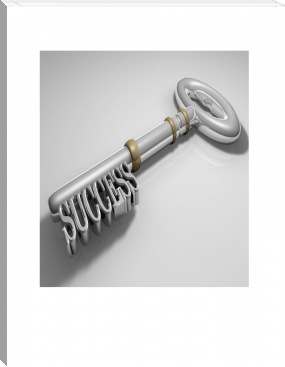Become More Productive and Successful, Rough Guider [ebook reader wifi .TXT] 📗

- Author: Rough Guider
Book online «Become More Productive and Successful, Rough Guider [ebook reader wifi .TXT] 📗». Author Rough Guider
Become more productive and successful at work
by Rough Guider
This is the third book in the ‘Rough Guide to Success’ series in which the author shares from first-hand experience ways to be productive and successful at work. Tried and tested techniques are explained and can be readily implemented in the workplace. As always this is a personal view on how to be productive and you should ensure that the practical no-nonsense suggestions and recommendations make sense in your particular work environment.
Part 1: How to be more productive at work
Contents
Know your job Learn from your peers (boss) Make sure that your output is used Know the value of your tasks Invest time in learning the skills Plan Prioritize Clear and timely communications Automate Identify road-blocks Challenge the status quo Let things hit your desk once only Do things right the first time Seek the paperless office Think laterally Take breaks Use a second pair of eyes Liaise with the experts Avoid time stealers Identify ‘incrementalists’ Be content with short meetings Streamline Check that you’re on track Be healthy Learn to say “no” Make use of a mentor Run meetings effectively Set deadlines Do not be a perfectionist Follow up on requests Work as a team – the sum is greater than the parts Use your gadgets intelligently Re-allocate tasks to suit the strengths of team members
Contents (continued)
Use Intranet Q & A sites Develop process/system notes for staff Join external groups and networks Manage information received Identify your ‘focus time’ Avoid interruptions Identify duplicate work
Introduction
In this book, I have put a list of ways to become more productive together. The list reflects the experiences I have gained in the work environment over the last 25 years.
You should of course feel free to learn, ignore and challenge the wide range of suggestions that I have put before you. Every work environment is different, and every person has a different set of pressures exerted upon them at work and by themselves. As a result, I ask you to think carefully about which recommendations would be most impactful for you. I desire positive outcomes for each and every one of you!
Efficiency versus effectiveness
It is important that you understand the difference between these two terms. In my mind efficiency is doing something as fast as possible without making mistakes. For instance, you build a quality ladder as fast as possible, using the right tools, right materials and right workforce. Effectiveness is doing the right thing, also as fast as possible, without making mistakes. Let’s take the example further. Once you have completed the ladder you remember that you need to use it in the garden to pick apples. However, you have assembled it in your upstairs bedroom. As a result, you will now have to dismantle it and start again outside. You can see that you may have been efficient in terms of the speed by which you put the ladder together, but because you didn’t plan the activity properly, you were ineffective in achieving your ultimate goal of having the ladder completed in the right place at the right time.
This is a very simple example, but when applied to the workplace, it is surprisingly common how often individuals are being efficient but to one extent or another ineffective.
Therefore, the first and most important learning is to understand why you are doing what you have been asked to do. Once you have completed your task ask yourself whether you have achieved the goal that was set. Indeed, is there a more effective way of achieving your goal? Challenge yourself to visualize the final product of your task and double check that the outcome is the desired one.
Below you will find the list. Everyone will have their own view on the relative order (and of productivity ideas I’ve missed altogether) so please accept this as my humble and personal view.
Know your job
Without doubt, there is no substitute for learning your role inside out. Therefore you should invest time to ensure you fully understand your role, the key tasks, how your performance is measured, how your work impacts others and how your output is used by others. Once you know your role really well, you will command respect and be seen as the expert in that area of the business. The expertise you have gained may relate to the processing of expenses, sales calls, facilities management, recruitment or any other area of your company’s undertakings. This concept applies to every type of role, throughout your career.
Learn from your peers (boss)
In many jobs your peers will already have the answers to a lot of your questions. Your boss may have all the answers as well, but asking your boss for help is the most obvious step for each of us to take. Also, nobody likes to inundate their boss with questions.
Therefore, depending upon the structure of your department and/or business, you could dramatically increase your productivity by leveraging the skills and knowledge of those around you. Particularly in the early days of your role your peers may be able to point out various potential pitfalls.
Make sure that your output is used
Before we even get to ‘planning’ you should think about how your output is going to be used. At work we are often asked to complete tasks and assignments, but we infrequently question why we have been asked to perform them.
One thing I strongly suggest that you do is reach out to those that receive your reports, data and/or other information and obtain their confirmation that the output is being used in a way that adds value to the business. You should do this regularly, perhaps on a quarterly basis.
My team at work has taken this approach very seriously and as a consequence has cut out a significant number of unproductive tasks and procedures. Perhaps to their surprise, recipients of information are happy to acknowledge that, on occasion, what they produce ends up in the recycle bin. A large percentage of people complain about information overload, so if you can cut that down they will surely be appreciative.
Know the value of your tasks
Take time to understand what tasks and procedures are essential (for compliance, statutory and other ‘must do’ purposes), those that add some value to the business and those that are performed as a matter of routine, with no obvious value. You should question (diplomatically) why you are undertaking the tasks that do not add value, to understand better how they help you achieve your annual objectives, your department’s objectives and those of the business as a whole. It may be that you are not aware of the value of the task that has been assigned to you, or you do not have sight of how it fits into the overall scheme of things. If after this ‘questioning’ it is clear that the task does not add value to the business, you should discuss it further with your boss. The bottom line is that you should understand the relative value of all the tasks within your remit.
Invest time in learning the skills
I have included below some examples of how individuals can become far more productive by having the necessary skills:
Do not add up figures manually but use spreadsheets. Be trained on how to use them properly. The usefulness of spreadsheets will depend upon the role you have at work, but it is amazing how such software can be used to save you a significant amount of time.The next stage is to use (by way of example) Pivot Tables, Look-Up Tables and ultimately, where appropriate, macros. One example I have is a finance team that produced manual bank reconciliations, checking that cash book amounts agreed to what was recorded on the bank statements on a manual basis. Given there were hundreds of transactions each month, and seven bank accounts, this took about 21 hours of elapsed time each month. The team introduced a macro that automatically matched the relevant items to reduce processing time to less than 15 minutes. What a saving! The key here is to learn the tools of the trade and become proficient at those that allow you to become more productive. If you are searching for data, summarizing data, organizing data or merging data (and so on!) rest assure that there is a simple cost effective way of doing these.
Spreadsheets are a prime example given how many people use them as a tool at work. However, the same methodology applies to word processing software, presentation software and indeed bespoke software. Learn the tools of the trade inside out and the payback should be meaningful.
Plan
You cannot get away from it. Planning is so very important and is something that we are taught about at school but many still fail to plan adequately when at work. From junior to senior staff we so often see the impact of poor planning on the productiveness of individuals.
Before undertaking any significant tasks spend time planning out what you want to achieve and determine the best ‘effective’ way of achieving it.
Through planning and the sharing of your plan with others, while also asking for feedback, you will no doubt find that you are better placed to achieve the desired results.
Prioritize
You were no doubt expecting this to be near the top of the list, and hopefully you are not disappointed. Once you know what you should be doing, and you know what you are doing adds value and is being used by others, you can prioritize in order to get to those higher value tasks first.
There is a whole host of time management courses you can go on in order to hone those time management skills (and so much on the web as well). What I ask is that you ensure that every task you work on creates value (someone really needs it to be done) and that those that are most important are done first. By this I do not mean that you should continually ignore what you perceive as less valuable tasks, but rather ensure that the timelines for completing them are properly communicated to those that need to know, so that you can manage their expectations. In fact, the reason why many managers feel let down in this regard is not the fact that they doubt that you are working on the most important stuff but that they were not aware that some of the other tasks, perhaps lower priority ones, had been put on the back burner. By managing their expectations you are solidifying and supporting your list of priorities.
Clear and timely communications
Projects, assignment and tasks often fail to deliver the required outcome or do so after much noise, disturbance and correction due to poor communication from the project manager or task setter.
If you are responsible for setting tasks/projects for other staff remember to communicate early, clearly, concisely and ‘buy’ them into the process.
The worst run projects are often those where the objectives and expected outputs are altered mid-term, as the person managing the process has not been clear about the requirements from the outset, or has failed to communicate them in a timely manner. The result is mayhem, often leading to the imposition of ‘all hands to the pump’, with significant additional pressure exerted on team members as well as the general disillusionment that accompanies such pressure.
I can’t emphasize enough how important it is to consider those around you as early as possible in the process, to ensure that, at the end of the day, they work effectively for you.
Put another way, have you ever wondered why some people manage projects that appear to run smoothly, to time and on budget whereas others seem to be playing catch-up continually, changing the goal-posts and absorbing more and more time of those on the team?
Automate
There are so many ways to automate workflow. This varies widely, industry by industry, department by department and role by role.
The general rule is that if there is a task or procedure that you undertake regularly and which takes up





Comments (0)